Newsletter 7: The Battle of Unity and Dignity
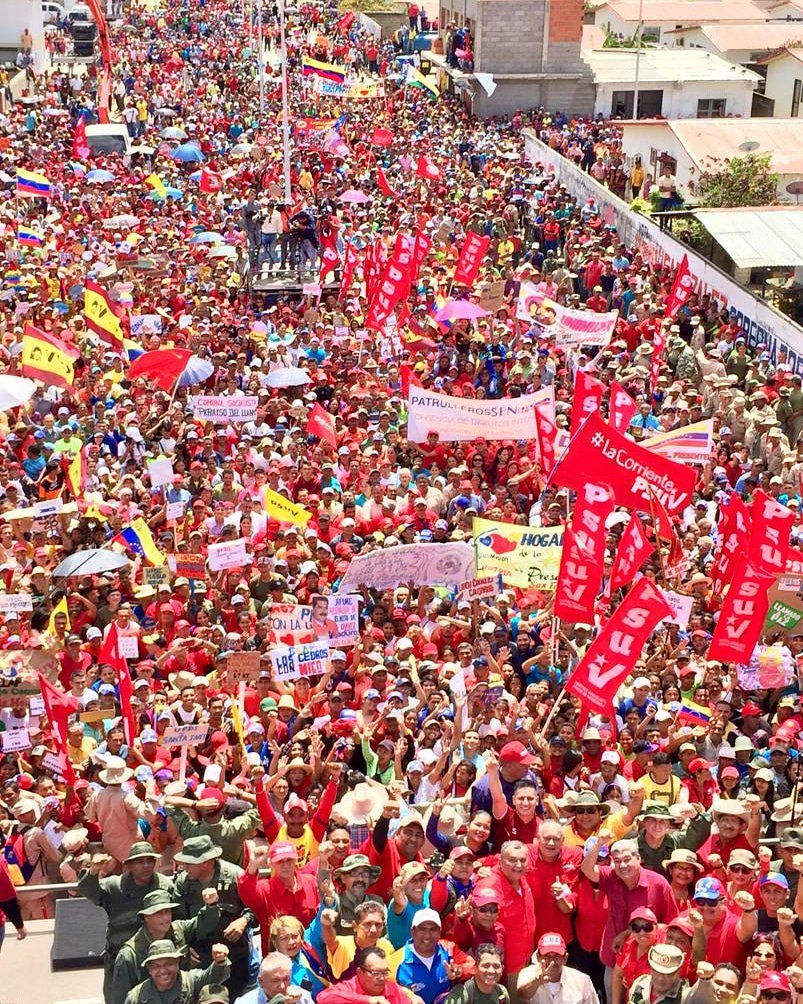
February 11, 2019
Dear friends,
Greetings from The Red Nation.
In the Americas, sabres are rattling. Dark clouds are on the horizon. A U.S.-backed coup is slowly unfolding in Venezuela. Our friends at the Tricontental Institute for Social Research have compiled this recommended reading list on the Venezuelan coup.
While the outcome of the coup is uncertain, one thing is clear. Imperialism is always about class struggle.
Millions of poor (mostly brown) people rally behind their democratically elected leader, President Nicholas Maduro, and the gains made by the Bolivarian Revolution that began under Hugo Chavez. The United States and its friends—such as Brazil, Canada, and Columbia—have chosen the side of the rich (mostly white) upper classes, represented by Juan Guiadó, who wants to reverse the advances made by the poor masses (especially in the realms of healthcare, education, and political participation) by opening up the country for plunder by U.S. oil companies.
You cannot talk about Venezuela without talking about oil. Much like Native nations in the Global North, nations of the Global South are trapped by an economic system put in place by colonialism. Colonized nations generally earn the bulk of their revenues from single commodities (such as oil, gas, and coal) that are consumed by imperial nations of the North. The reason is that they are resource colonies producing goods and raw materials for the imperial metropole. For example, just as the Navajo Nation’s primary revenues come from oil and coal for U.S. consumption, nearly all of Venezuela’s export revenues come from oil. When global oil prices fell due to the North American oil boom, a crisis ensued in Venezuela, and the money used to fund the social progress of the country’s poorest was all but halted.
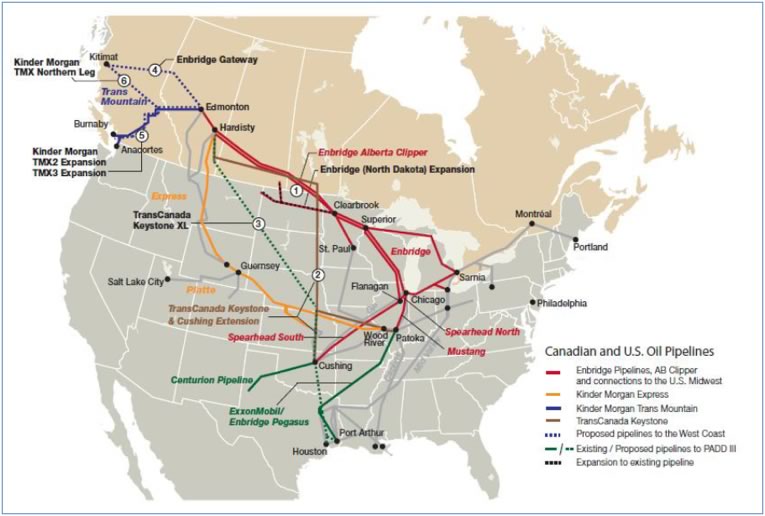
And there is a direct link to the Venezuelan crisis and oil production in North America. Around the time Obama era pro-oil and gas energy policies began to take hold in 2008, global oil prices rapidly fell. This was partially due to the United States and Canada building new carbon infrastructure to drill and transport oil from production to market. This oil boom has wreaked havoc on Native nations, with the creation of oil pipelines, tar sands “dead zones,” fracking rigs, and refineries, locking in settler economies to drill and drill at the expense of Indigenous lands and lives. Meanwhile, the boom weaned the U.S. economy from oil imports from countries like Venezuela, whose major oil buyer was the United States. But the alternative source of oil is much worse.
And the most recent standoffs against the construction of oil pipelines at Standing Rock, Bayou Bridge, Line 3, and Unist’ot’en Camp show that the U.S. and Canada still need to plunder Indigenous lands to make a profit to keep their economies afloat. Thus, Indigenous resistance in North America is at the forefront of combatting imperialist plunder, and our struggles are interconnected with our relatives of the Global South.
Trump’s new sanctions against the state-owned Venezuelan oil company, PDVSA, while not targeting U.S. oil companies like Chevron and Halliburton, reveal the true intentions of the United States. It’s not about democracy. It’s about expanding the U.S. sphere of influence at the end of a rifle barrel.
History doesn’t repeat itself, but it does echo. And there are dark reverberations from the past that should be remembered.
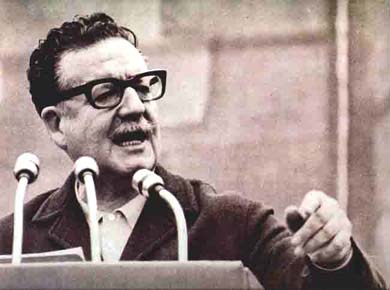
In 1970, Chileans elected socialist president Salvadore Allende. Immediately, the CIA took notice and began an operation against his government. The planned intervention picked up pace after Allende nationalized the country’s oil production, kicking out U.S. oil companies. By 1973, under the direction of Nixon, the CIA had made contact with Chilean military officials to orchestrate a coup. Leading up to the bloody coup, the Western press villainized Allende as a “socialist dictator.” Allende died during the military coup and the country fell under the control of the military dictatorship of Augusto Pinochet, who unleashed a wave of terror against leftists, the poor, and Indigenous Mapuche.
It’s a tragic cliche of US foreign policy to overthrow governments and invade countries for oil. President Donald Trump doesn’t shy away from this cutthroat stereotype. He embraces it.
“I still can’t believe we left Iraq without the oil,” Trump lamented in a 2013 tweet. In 2017, Trump asked Iraqi prime minister Haider al-Abadi, “So what are we going to do about the oil?” It was a callous question about how Iraq was going to repay the country that invaded it and was responsible for the deaths of hundreds of thousands after nearly a decade of war. According to Trump and his ilk, Iraqis had not paid enough in blood because they still had the oil. This is the price of U.S. intervention—death and destruction.
And Trump has suggested a military invasion of Venezuela. His National Security Advisor John Bolton walked into a press conference with the words 5,000 troops in Columbia written on a yellow notepad.
The plundering behemoth stalking the globe has an endless thirst. U.S. imperialism is the number one enemy of the planet, and it must be the first belligerent we address when dealing with any war or intervention, “humanitarian” or otherwise. We cannot “transition” to a carbon free economy while the United States plunders and invades poorer nations to capture and steal resources. And any political alternative to capitalism cannot come at the expense of the Global South.
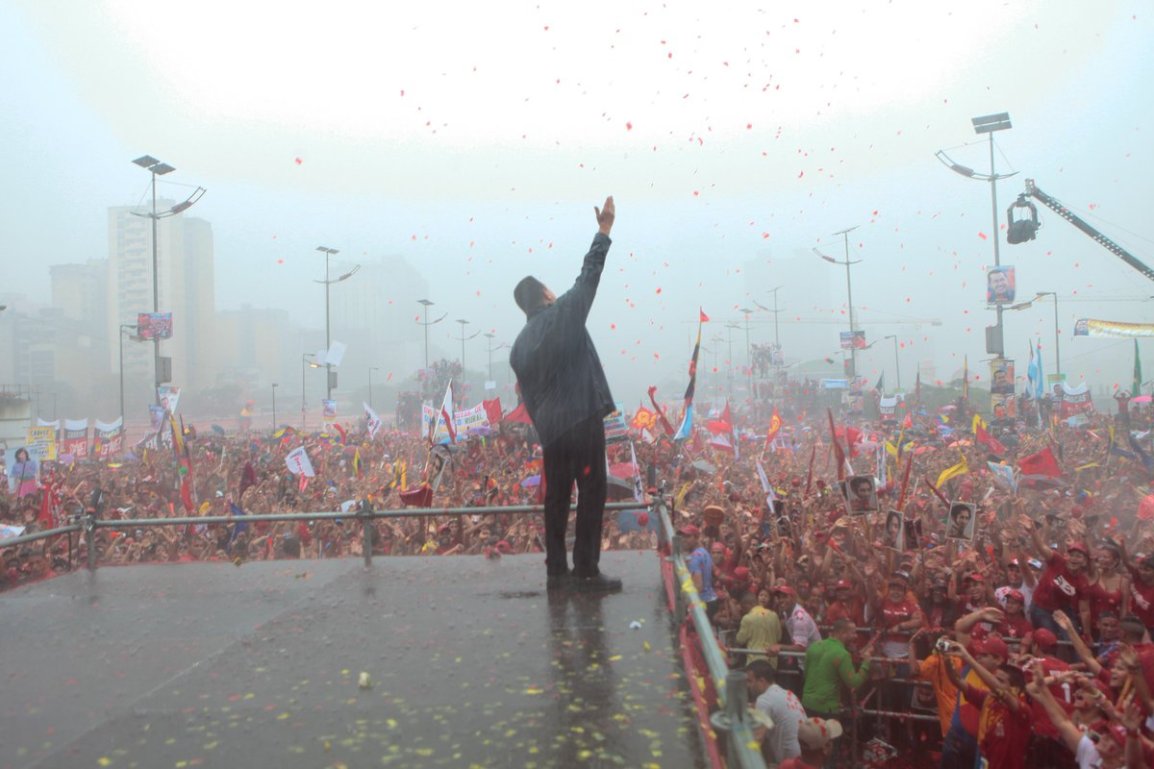
That’s why we wrote in our statement condemning the U.S.-backed coup and supporting the Bolivarian Revolution:
There is no positive role for the United States to play in the Global South. The expansion of the racist doctrine of Manifest Destiny through the policies of the Monroe Doctrine asserted the supremacy of the United States in the Western Hemisphere and greatly expanded the project and aims of settler colonialism. From the coup in Guatemala to oust democratically elected Jacobo Arbenz in 1954 to the creation of the School of the Americas (now WHINSEC) and the counterinsurgency and low intensity wars waged in Latin America throughout the 1960’s to 1990’s, US imperialism has injured, exploited, and destabilized the lives and governance of our relatives in South and Central America.
Furthermore, it is important to contextualize the U.S.-backed coup within U.S. foreign and domestic policy:
This current coup attempt by the United States to overthrow the democratically elected government of Venezuela comes from seventeen years of failure of trying to get rid of the socialist project initiated by Hugo Chavez. The administration of George W. Bush successfully ousted Chavez in 2002, but the people of Venezuela forced the return of Chavez to power by popular will. This groundswell of support for the Bolivarian Revolution is what causes us to reflect, study, and challenge the narratives imperialist nations put forward about the current Venezuelan government.
What we know for sure is that Venezuela, through the process of the Bolivarian Revolution, has seen increases in participation in social, economic, and political life from Indigenous peoples, Women, LGBTQ, Africans, and poor people. This has been a project from the left and from below. The Venezuelan people are working to create a future that is shaped by their participation and we must respect our relatives and their right to self-determination.
The current coup attempt is directly connected to immigration and refugees. From these countries, thousands have fled poverty and violence fueled by US economic, political, or military intervention, with a significant amount of violence caused by the US-led war on drugs. Humble people are left with no options but to flee with their families including children. They make the perilous trip through Mexico to the US border seeking refuge. The United States either beats them back with tear gas, violating its own federal laws on refugee and asylum status, or imprisons them in detention camps where families are separated and where many die.
Continuing the policies enacted against Indigenous peoples inside the borders of the United States, immigrant children are being ripped from their families and being placed in camps, as well as being put up for adoption. Parents of children are being deported. LGBTQ immigrants and refugees are targets of gender and sexual violence and face the constant threat of outright murder.
We need a new anti-imperialist realignment. Defeating a border wall has to be tied to defeating US military interventions that back corporate agendas in South and Central America. These interventions have to be seen in the context of what is currently unfolding in Venezuela, Colombia, Mexico, Nicaragua, El Salvador, Bolivia, Brazil, and Guatemala. It must be about realignment.
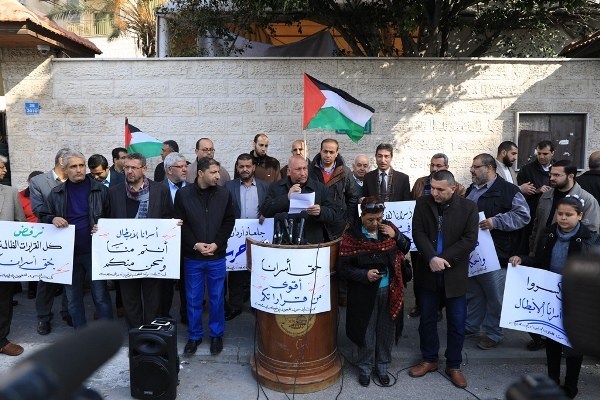
Three weeks ago, Palestinian political prisoners began a resistance movement within Israeli jails. The beaten and tortured bodies within these dungeons called their movement “the battle of unity and dignity.” They were met with tear gas, pepper spray, attack dogs, and relentless violence. The recent attacks against the prisoners are part of a concerted effort to roll back the historic gains made by prison organizing that are working in tandem with the international Boycott, Divestment, and Sanctions Movement (BDS), which is gaining traction and exposing the crimes of Israel.
Despite the horrific repression, the prisoners are asking for support by escalating BDS. Our friends at Samidoun, published their message to the world, reminding us of their historic sacrifice:
Our people are steadfast. Today is a day of fulfillment, we are part of you and you are part of us. We are shortening our years for the sake of our homeland, so do not limit your use of your time for our stolen freedom.
In solidarity with the Palestine Freedom Movement, The Red Nation and Santa Feans for Justice in Palestine will be hosting a special event with Ahmed Abu Artema, one of the founders of Gaza’s Great March of Return, at 7 PM on March 12 at the Universalist Unitarian Church in Santa Fe, New Mexico.
This week, from February 14-18, The Red Nation will be joining our relatives in Tornillo, Texas for REVOLUTIONARY LOVE: Weekend of Resistance for Migrant Justice. More than 10,000 children are still being held in detention in hundreds of facilities across the country. The Tornillo Detention Facility, while facing waves of protest, is close to being shut down. For more information and to make a donation, visit the Tornillo: The Occupation GoFundMe page.
Red Nation member, Nicolás Cruz, made this video about the Tornillo Occupation:
In this historic time, with the spectacle of U.S. politics—Trump and the Democrats vying for power—the oxygen is being sucked out of the room. All our attention is drawn to the institutions that have changed little in the world in terms of democracy and freedom. But the movements for peace and justice are not coming from the elite halls of settler governments in North America, nor are they coming from the corporate media spectacles catering to the elite. The movements for freedom are clamoring in Israeli dungeons, on the streets of Caracas and in the Venezuelan countryside, and with the Indigenous and migrant youth trapped within the child prisons of U.S. democracy at the border.
These are the sites of our Battle of Unity and Dignity.
Solidarity forever,
Nick

PS: Join me for the launch of my book, Our History is the Future: Standing Rock versus the Dakota Access Pipeline, and the Long Tradition of Indigenous Resistance, which publishes February 26 with Verso. You can find all the book talk dates and locations here.
Mar. 5: Community Bookstore
with Audra Simpson
7 PM
Brooklyn, NY

Mar. 6: The People’s Forum
Racial Capitalism Working Group, The People’s Forum, Verso
6:30 PM
New York, NY
